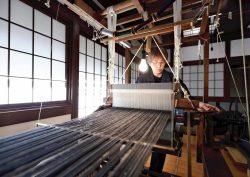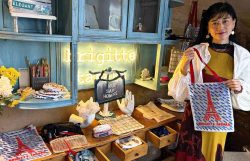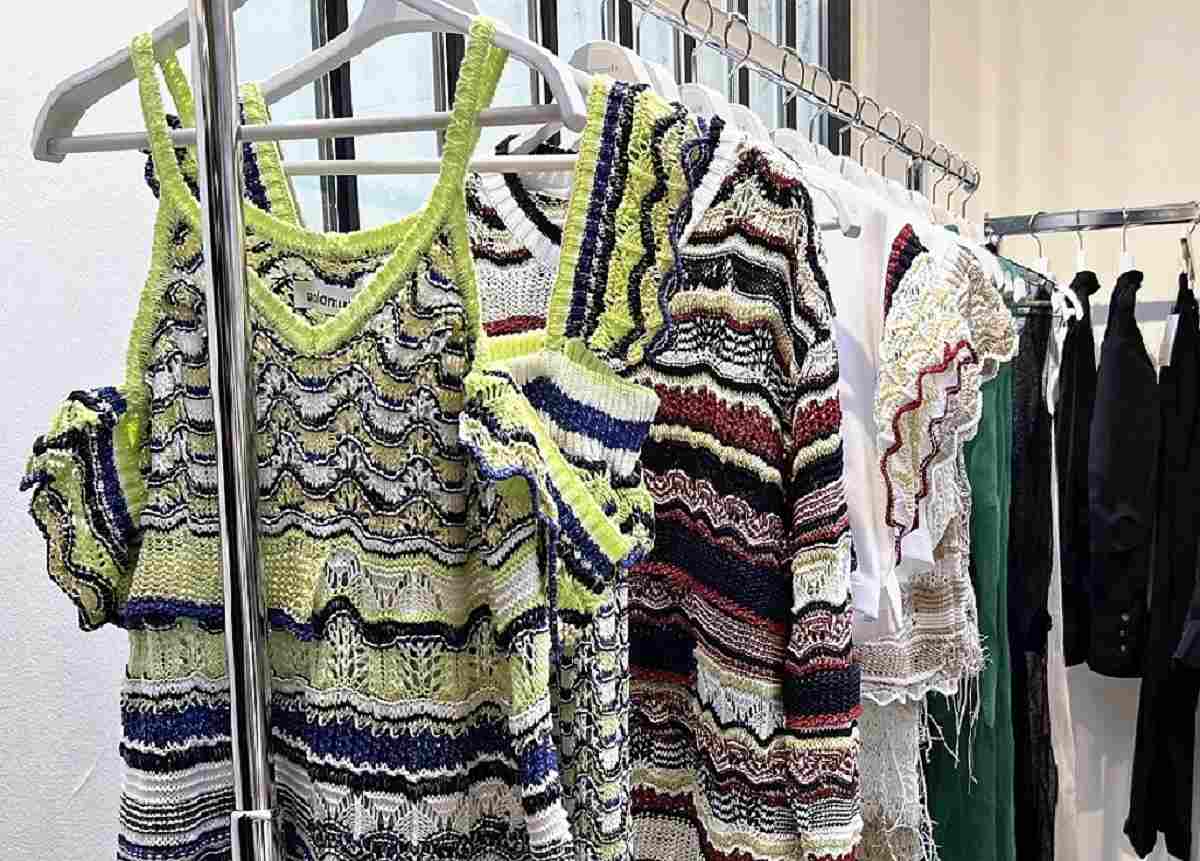
This photo shows some of Odaka’s works, including Crazy Knit, front, at a joint exhibition in Paris in September 2022, which marked her international debut.
12:00 JST, August 2, 2024
Ten years have passed since fashion designer Mari Odaka, who excels in knitting, launched her own brand. Last year, she changed the brand name from Malamute to Odakha, an alternative spelling of her surname, to better promote her brand overseas.
Odaka is trying to appeal to the brand’s Japanese origin. “I want to nurture the brand so that it will come to represent Japanese knitwear,” she said.
A pale-yellow sweater with large daffodil patterns and a knitted skirt with a soft, lace-like mesh fabric are part of Odaka’s 2024 autumn and winter collection. The inspiration behind the sweater includes daffodils painted by David Hockney and the film “Paterson,” directed by Jim Jarmusch, which follows the days of a man’s humble life.
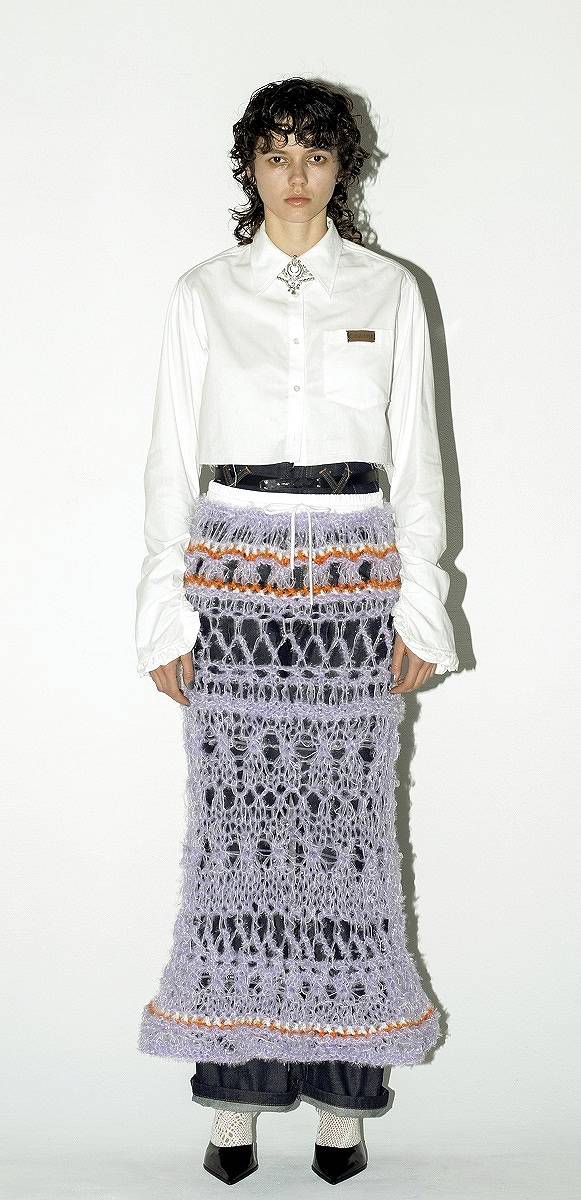
This skirt with a lace-like mesh texture is one of Odaka’s new works for the 2024 autumn and winter collection.
“People’s daily lives tend to be gloomy in autumn and winter, so I drew bright happiness for them,” she said, laughing.
Odaka became fascinated with knitting while studying at Bunka Fashion Graduate University.
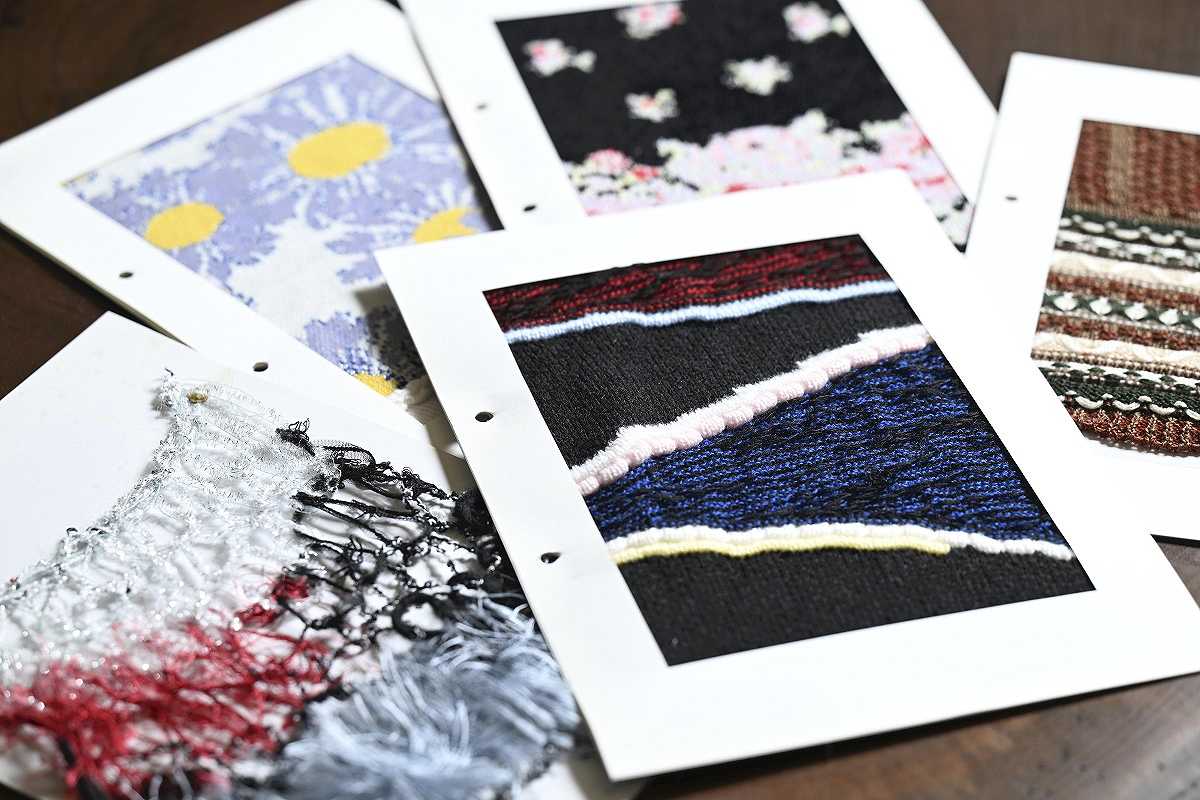
These samples show knitted fabrics created by Odaka in 2014, the year she made her professional debut as a fashion designer. Her works were already very colorful.
“You start [knitting] by choosing the yarns. You can create the fabric with the texture that you like,” she said. “I found it fascinating that there’s so much freedom.”
After graduating, she worked for a knitting company. In 2014, she founded Malamute because “I wanted to design under my own brand,” she said.
Immediately after striking out on her own, she began challenging herself to use different types of yarns to create knitwear that was full of variety. She subsequently named them “Crazy knit,” which became a nickname for her brand. She received the Tokyo Fashion Award in 2021 and won the opportunity to participate in a joint exhibition in Paris from September to October in 2022.
“Buyers in Europe who had seen all kinds of attire told me directly that [my works are] interesting,” she recalled.
Around the same time that she received a good response during her first overseas venture, knitting factories she had a great working relationship with closed in succession. Now that the world was in her sight, she wanted to let other countries know that she made her work in Japan. So she changed the brand name from Malamute to Odakha so that it would be more recognizable as coming from Japan, even though she was attached to the old name, which was derived from the large Alaskan Malamute dog breed. She also added the words “Made in Japan” to the labels.
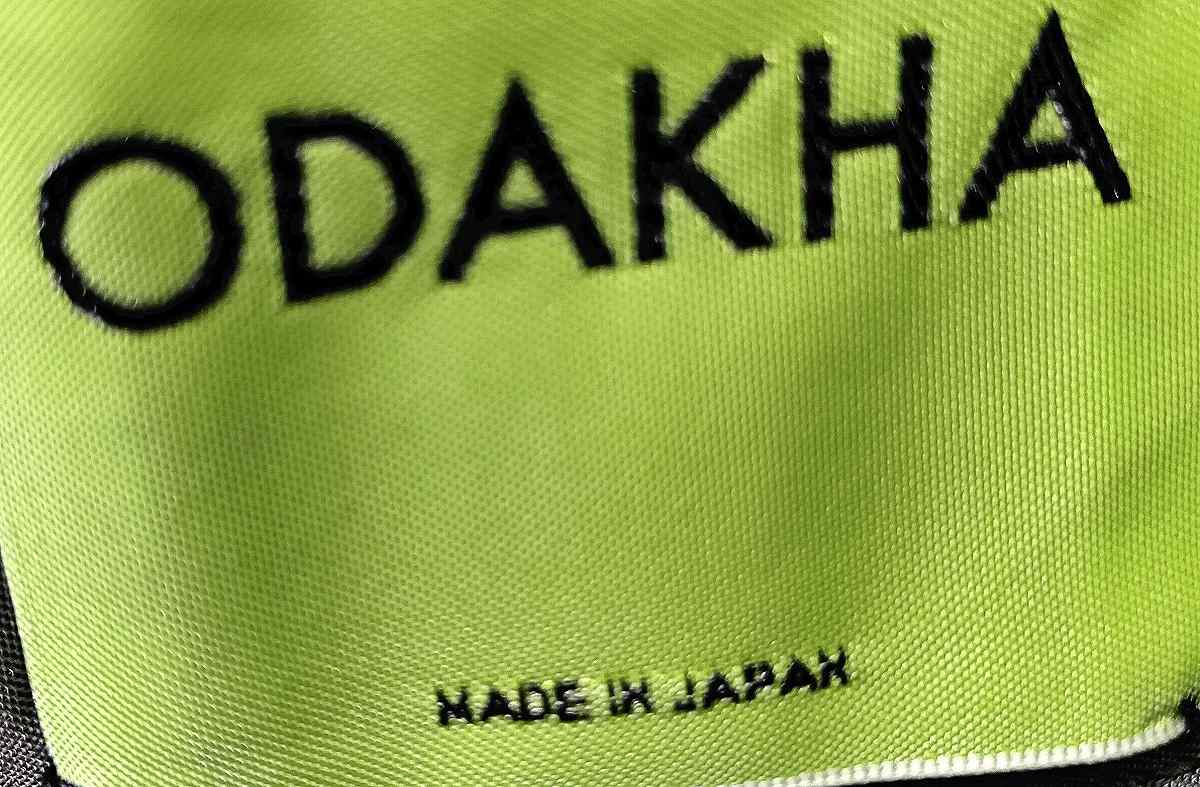
A label for an Odakha branded piece with “Made in Japan” on it.
Her commitment to “Made in Japan” remains even after the brand name change. Currently, she works with about 10 knitting factories in the country, incorporating the craftmanship of the artisans into her work. She is eager to work on not only technical innovation for knitting but also applying various ideas to knit texture processing by using other traditional techniques, such as tie-dyeing.
“I will offer unique Japanese knitting together with other knitters in this country,” she said.
Her next goal is to hold her own show in Paris.
Top Articles in Culture
-

BTS to Hold Comeback Concert in Seoul on March 21; Popular Boy Band Releases New Album to Signal Return
-

Lifestyle at Kyoto Traditional Machiya Townhouse to Be Showcased in Documentary
-

Director Naomi Kawase’s New Film Explores Heart Transplants in Japan, Production Involved Real Patients, Families
-

‘Jujutsu Kaisen’ Voice Actor Junya Enoki Discusses Rapid Action Scenes in Season 3, Airing Now
-

Tokyo Exhibition Offers Inside Look at Impressionism; 70 of 100 Works on ‘Interiors’ by Monet, Others on Loan from Paris
JN ACCESS RANKING
-

Japan PM Takaichi’s Cabinet Resigns en Masse
-

Japan Institute to Use Domestic Commercial Optical Lattice Clock to Set Japan Standard Time
-

Israeli Ambassador to Japan Speaks about Japan’s Role in the Reconstruction of Gaza
-

Man Infected with Measles Reportedly Dined at Restaurant in Tokyo Station
-

Videos Plagiarized, Reposted with False Subtitles Claiming ‘Ryukyu Belongs to China’; Anti-China False Information Also Posted in Japan


